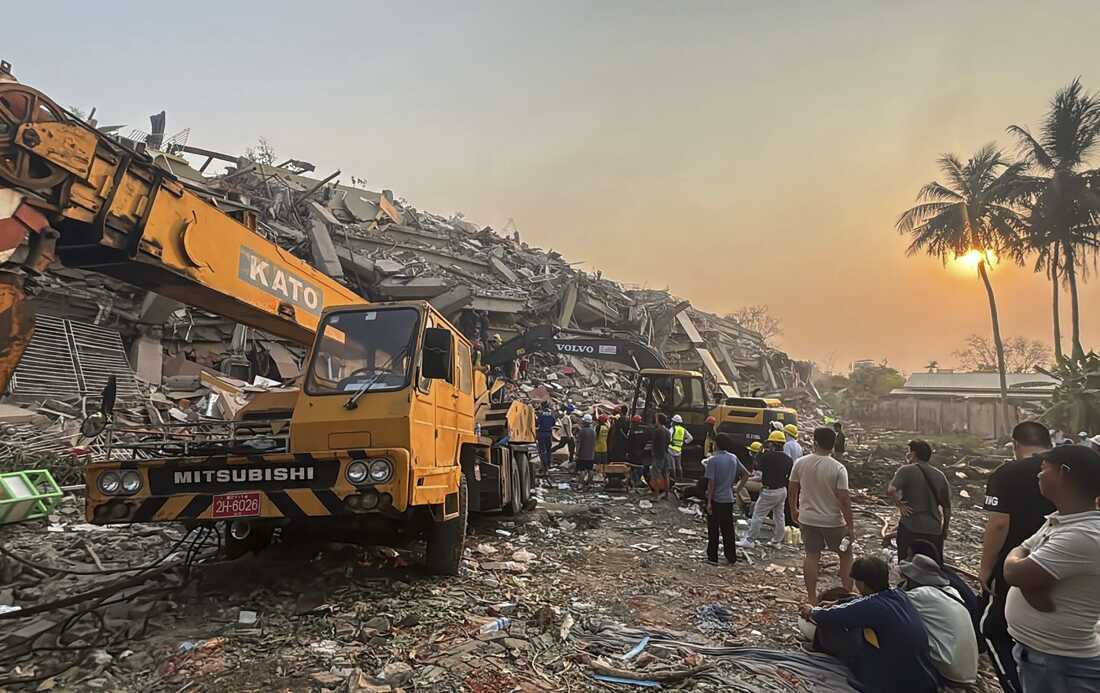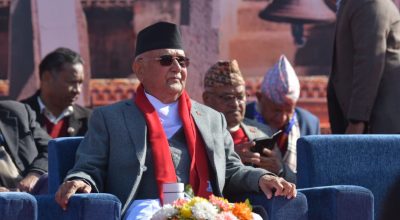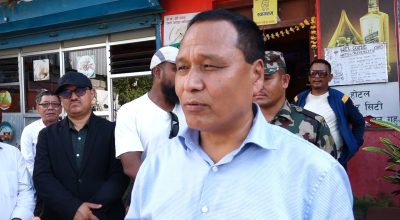
Brahma Chellaney
NEW DELHI, APRIL 10 (PS): Myanmar needs help. After more than four years of brutal civil war, the country has been hit by a 7.7-magnitude earthquake, the strongest it has suffered since 1946. The resulting humanitarian crisis is dire, and continues to escalate, but despite an extraordinary appeal for international aid from Myanmar’s military ruler, Senior General Min Aung Hlaing, the United States has largely failed to deliver.
To be sure, President Donald Trump has said that the US is “going to be helping” with the crisis response. But while China, India, and Russia moved swiftly to provide emergency relief, including deploying rescuers and medical teams, the US has fallen far short. The Trump administration’s gutting of foreign-assistance programs – including mass firings and contract terminations at the US Agency for International Development (USAID) – is one reason why. A more important reason is that stringent US sanctions against Myanmar remain in place.
Even before the recent USAID cuts, the US was poorly positioned to deliver emergency aid to Myanmar. Since the military’s overthrow of a civilian government in February 2021, the US has taken a punitive approach to Myanmar. Trump’s predecessor, Joe Biden, implemented increasingly harsh sanctions, while providing “non-lethal” military aid to rebels seeking to overthrow the junta – policies that the Trump administration has so far upheld. Now several Democratic senators have urged sanctions waivers to allow quake relief to go to Myanmar.
In recent years, USAID assistance essentially has been channeled to rebel-controlled areas, where it has been used largely to establish local governance structures and provide emergency relief for internally displaced civilians. But the regions hardest hit by the earthquake remain under government control. America’s refusal to engage constructively with the junta has thus directly hampered efforts to deliver assistance where it is needed most.
More broadly, US policy toward Myanmar has done nothing to promote stability, let alone a democratic transition. On the contrary, while sanctions have done little damage to the military rulers, they have contributed to rampant lawlessness, enabling warlords, human traffickers, drug syndicates, arms dealers, and poachers to thrive. Myanmar has now surpassed Afghanistan as the world’s leading opium producer, and according to the Global Organized Crime Index, it has emerged as the “biggest nexus of organized crime,” with destabilizing spillover effects on neighboring Bangladesh, India, and Thailand.
US support for Myanmar’s fragmented resistance has compounded the human-rights catastrophe. Tellingly, the latest wave of Rohingya refugees are fleeing not from the military, which has historically committed all manner of atrocities against the minority, but from an anti-junta rebel group, the Arakan Army. So brutal are the rebels’ attacks that Rohingya militias now work with their former oppressors, the county’s armed forces.
Meanwhile, China’s strategic foothold in Myanmar is becoming stronger. Strangled by broad-based US-led economic sanctions, Myanmar’s leadership has had little choice but to allow China to exploit its vast natural resources, from natural gas and mineral ores to precious stones and gems like rubies and jade.
The US has made this mistake before. During Myanmar’s previous military dictatorship, the US pursued a punitive, isolating, sanctions-based policy for more than 20 years – and nothing changed (other than China gaining influence). It was only when then-President Barack Obama embraced strategic engagement, encouraging democratic reform with the easing of sanctions, that the tide began to turn. In 2015, three years after Obama became the first US president to visit the country, Myanmar elected its first civilian-led government in more than 50 years.
The US applied this lesson in Thailand, where, as in Myanmar, the military has traditionally been the dominant political force, having seized power 12 times in the past 90 years. When Thailand’s army chief staged a coup in 2014, the US pursued diplomatic engagement with the regime – an approach that ultimately helped facilitate a return to civilian rule in 2023.
The Trump administration should embrace a similar approach toward Myanmar today. This means, for starters, leveraging the earthquake as an opportunity to initiate limited engagement with the regime. Such engagement could allow for greater humanitarian access, improved de-escalation efforts, and enhanced security, particularly along Myanmar’s eastern border, where Chinese criminal networks operate cyber-scam centers that have stolen billions of dollars from overseas retirees and others (including in the US).
Moreover, the US should replace broad-based economic restrictions with targeted sanctions against individuals and entities directly responsible for human-rights violations. It should also roll back its military support for insurgents, which perpetuates violence, and increase direct humanitarian aid to foster stability. And it should work with the Association of Southeast Asian Nations and other key regional actors, such as India and Japan, to advance a diplomatic conclusion of the civil war, guided by the recognition that a sustainable peace can be achieved only through engagement with all relevant parties – starting with Myanmar’s military.
Treating regime change in Myanmar as a moral crusade can end only one way: with the country spiraling further into chaos, to the benefit of transnational crime syndicates, narcotics traffickers, and America’s geopolitical adversaries. With a more pragmatic policy approach, however, the Trump administration can mitigate Myanmar’s humanitarian crisis, facilitate dialogue between the junta and opposition forces, and counter China’s growing influence in a strategically important country. The choice could not be clearer.
Brahma Chellaney, Professor Emeritus of Strategic Studies at the New Delhi-based Center for Policy Research and Fellow at the Robert Bosch Academy in Berlin, is the author of Water, Peace, and War: Confronting the Global Water Crisis (Rowman & Littlefield, 2013).
Copyright: Project Syndicate, 2025.












